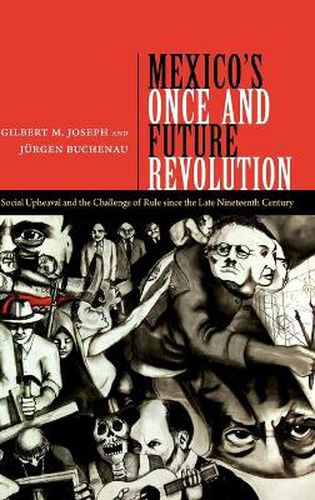Readings Newsletter
Become a Readings Member to make your shopping experience even easier.
Sign in or sign up for free!
You’re not far away from qualifying for FREE standard shipping within Australia
You’ve qualified for FREE standard shipping within Australia
The cart is loading…






In this concise historical analysis of the Mexican Revolution, Gilbert M. Joseph and Jurgen Buchenau explore the revolution’s causes, dynamics, consequences, and legacies. They do so from varied perspectives, including those of campesinos and workers; politicians, artists, intellectuals, and students; women and men; the well-heeled, the dispossessed, and the multitude in the middle. In the process, they engage major questions about the revolution. How did the revolutionary process and its aftermath modernize the nation’s economy and political system and transform the lives of ordinary Mexicans? Rather than conceiving the revolution as either the culminating popular struggle of Mexico’s history or the triumph of a new (not so revolutionary) state over the people, Joseph and Buchenau examine the textured process through which state and society shaped each other. The result is a lively history of Mexico’s long twentieth century, from Porfirio Diaz’s modernizing dictatorship to the neoliberalism of the present day.
$9.00 standard shipping within Australia
FREE standard shipping within Australia for orders over $100.00
Express & International shipping calculated at checkout
In this concise historical analysis of the Mexican Revolution, Gilbert M. Joseph and Jurgen Buchenau explore the revolution’s causes, dynamics, consequences, and legacies. They do so from varied perspectives, including those of campesinos and workers; politicians, artists, intellectuals, and students; women and men; the well-heeled, the dispossessed, and the multitude in the middle. In the process, they engage major questions about the revolution. How did the revolutionary process and its aftermath modernize the nation’s economy and political system and transform the lives of ordinary Mexicans? Rather than conceiving the revolution as either the culminating popular struggle of Mexico’s history or the triumph of a new (not so revolutionary) state over the people, Joseph and Buchenau examine the textured process through which state and society shaped each other. The result is a lively history of Mexico’s long twentieth century, from Porfirio Diaz’s modernizing dictatorship to the neoliberalism of the present day.